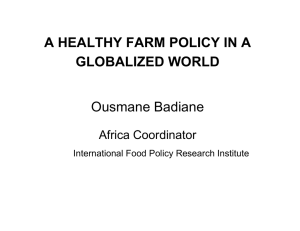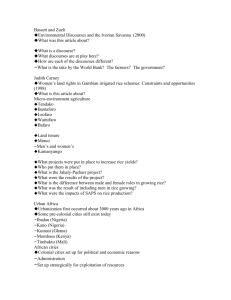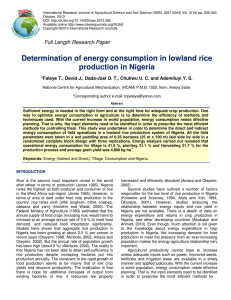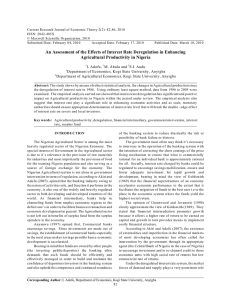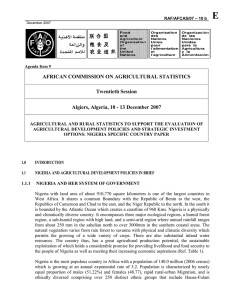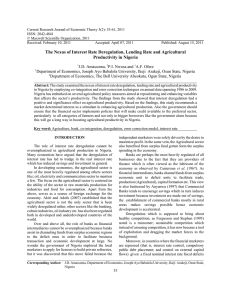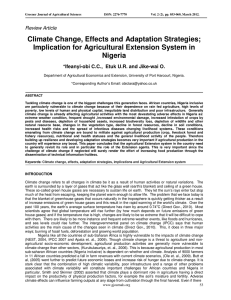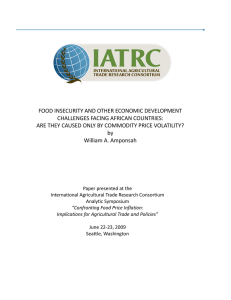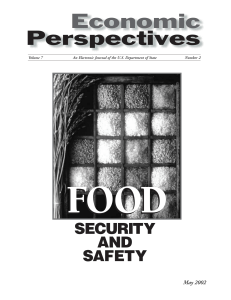Proceedings of 8th Asia-Pacific Business Research Conference
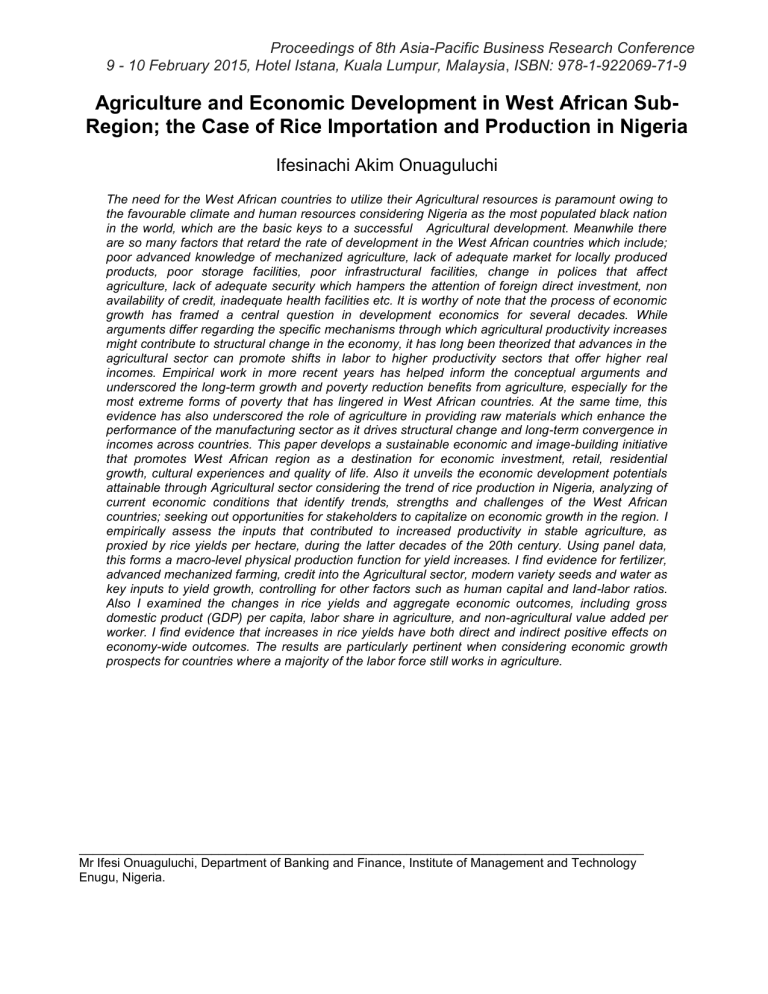
Proceedings of 8th Asia-Pacific Business Research Conference
9 - 10 February 2015, Hotel Istana, Kuala Lumpur, Malaysia
,
ISBN: 978-1-922069-71-9
Agriculture and Economic Development in West African Sub-
Region; the Case of Rice Importation and Production in Nigeria
Ifesinachi Akim Onuaguluchi
The need for the West African countries to utilize their Agricultural resources is paramount owing to the favourable climate and human resources considering Nigeria as the most populated black nation in the world, which are the basic keys to a successful Agricultural development. Meanwhile there are so many factors that retard the rate of development in the West African countries which include; poor advanced knowledge of mechanized agriculture, lack of adequate market for locally produced products, poor storage facilities, poor infrastructural facilities, change in polices that affect agriculture, lack of adequate security which hampers the attention of foreign direct investment, non availability of credit, inadequate health facilities etc. It is worthy of note that the process of economic growth has framed a central question in development economics for several decades. While arguments differ regarding the specific mechanisms through which agricultural productivity increases might contribute to structural change in the economy, it has long been theorized that advances in the agricultural sector can promote shifts in labor to higher productivity sectors that offer higher real incomes. Empirical work in more recent years has helped inform the conceptual arguments and underscored the long-term growth and poverty reduction benefits from agriculture, especially for the most extreme forms of poverty that has lingered in West African countries. At the same time, this evidence has also underscored the role of agriculture in providing raw materials which enhance the performance of the manufacturing sector as it drives structural change and long-term convergence in incomes across countries. This paper develops a sustainable economic and image-building initiative that promotes West African region as a destination for economic investment, retail, residential growth, cultural experiences and quality of life. Also it unveils the economic development potentials attainable through Agricultural sector considering the trend of rice production in Nigeria, analyzing of current economic conditions that identify trends, strengths and challenges of the West African countries; seeking out opportunities for stakeholders to capitalize on economic growth in the region. I empirically assess the inputs that contributed to increased productivity in stable agriculture, as proxied by rice yields per hectare, during the latter decades of the 20th century. Using panel data, this forms a macro-level physical production function for yield increases. I find evidence for fertilizer, advanced mechanized farming, credit into the Agricultural sector, modern variety seeds and water as key inputs to yield growth, controlling for other factors such as human capital and land-labor ratios.
Also I examined the changes in rice yields and aggregate economic outcomes, including gross domestic product (GDP) per capita, labor share in agriculture, and non-agricultural value added per worker. I find evidence that increases in rice yields have both direct and indirect positive effects on economy-wide outcomes. The results are particularly pertinent when considering economic growth prospects for countries where a majority of the labor force still works in agriculture.
_________________________________________________________________________________
Mr Ifesi Onuaguluchi, Department of Banking and Finance, Institute of Management and Technology
Enugu, Nigeria.


